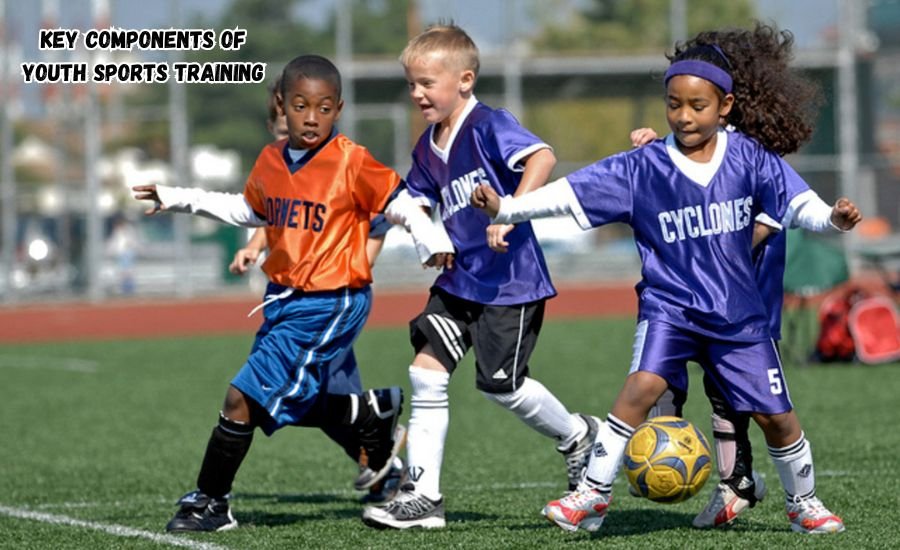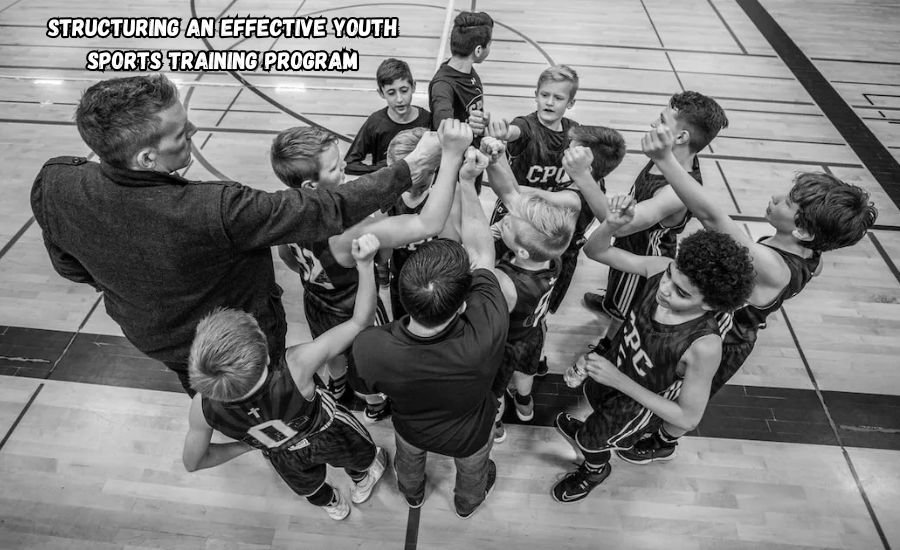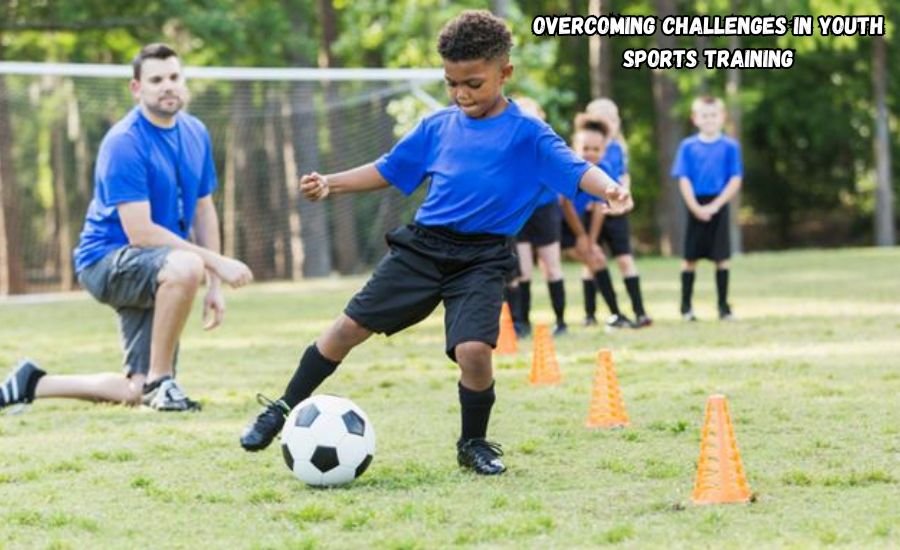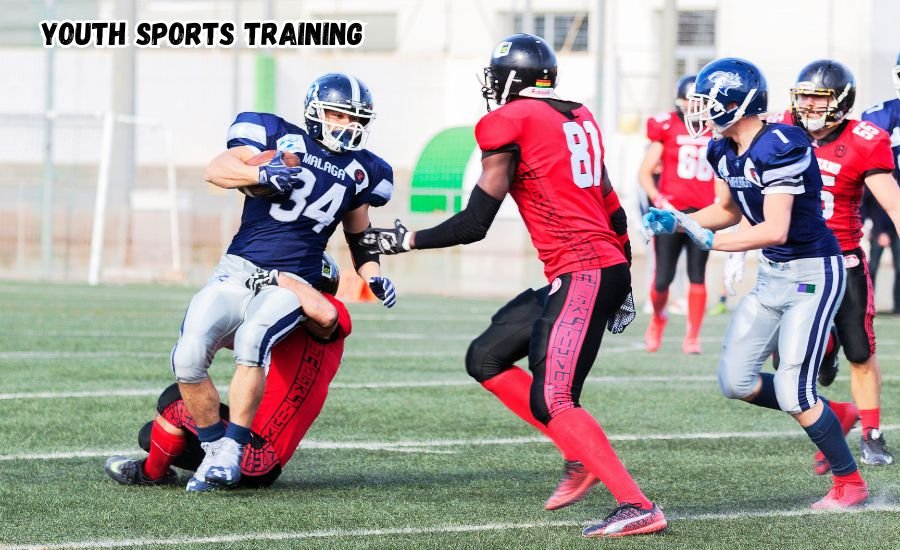Youth sports training plays an important role in the growth of young athletes, helping them develop physical strength as well as mental strength and crucial life skills. It’s much more than knowing the game. Training in youth sports provides youngsters with an opportunity to develop a variety of skills that can help later on.
From improving levels of fitness to building vital social skills, young sports education provides the foundation for developing into rounded individuals. The article below will discuss the importance of education inYouth Sports Trainingand its primary elements and how efficient programs can assist youngsters in their development within the game and throughout their lives.
The Importance of Youth Sports Training
Youth sports training doesn’t only focus on teaching kids to participate in sports, but rather about giving them a complete education experience. When kids are involved in organized activities, they are given the chance to improve their fitness levels, build their motor abilities and learn an understanding of the value of discipline and cooperation. In addition the training of youth sports training can help promote healthy lifestyles and assist children in developing an interest in exercising.
By implementing structured programming, children learn to handle successes and failings. Sports are an example of life in a microcosm and lessons learned in the field, court or track could be applied to different fields. If it’s an issue of enduring an extremely difficult match or celebrating a victory that you’ve won, sports training can help kids to remain strong, collaborate and focus on the targets they’ve set for themselves.
Key Components of Youth Sports Training

When developing the youth sports programs of training, it’s crucial to take into consideration the following important aspects to consider. These are the most important elements to make sure that players are thriving and expanding in a secure and positive environment that supports the development.
Skill Development
The base of the youth sports training athletes is the development of particular skills required to play a particular sport. Be it soccer, basketball, or swimming, mastering the fundamental skills of a sport are essential for athletes in their early years. Training programs must focus on the method and assist athletes to gradually build up their skills through repeated and regular exercise. Coaches should be able to clearly demonstrate and give constructive feedback and motivate athletes to strive to enhance their.
The young athletes are always growing, which is why it is crucial to alter the training methods to match their growth. For instance young athletes who are getting into sports may focus on the fundamentals of running and leaping and ball handling, while older athletes may be able to move onto more sophisticated techniques and techniques. This allows them to feel proud and assists them in preparing for the demands of the sport as they age.
Physical Conditioning
Conditioning is a crucial aspect of youth sports training. Young athletes need to develop strength and agility and the ability to move and endurance in order to perform and reduce the risk of suffering injuries. Training exercises to improve conditioning must be suitable for their age and concentrate on increasing the general fitness of your body.
For athletes with less fit, they can concentrate on improving coordination and balance through engaging in enjoyable activities and workouts. For older athletes, they are able to engage in more disciplined workouts to help build strength and strength, such as weightlifting, interval training or interval training under the supervision of an experienced coach.
Mental Training
Youth sports training isn’t just about physical fitness, but also mental capability. Mental resilience is vital for young athletes in order to perform under pressure and have the ability to face difficulties. It doesn’t matter if it’s an intense high stakes match or a demanding practice, mental training can aid athletes remain focused and calm and driven.
Coaches can integrate mental training into their youth training programs for sports by encouraging goal-setting and introduction of visualization techniques, and helping athletes develop an attitude of optimism. Through teaching athletes how to handle obstacles and staying focused, and how to bounce over obstacles, coaches are able to help them develop the mental toughness that will be beneficial on the field of sport and everyday life.
Structuring an Effective Youth Sports Training Program

A well-organized training program for children’s sports is carefully planned and contains all the essential components that help in the development of the athletes. They include setting goals, and the preparation of sessions of training and keeping track of the progress.
Setting Goals and Objectives
The most effective program for training starts with a clear set of objectives and targets. The coaches must work with athletes to identify specific, quantifiable, and achievable real and rapidly (SMART) goals. This might include improving the performance of a particular method as well as enhancing endurance or developing a completely new method.
For example trainers can assign goals for an aspirant soccer player to increase his speed in passing through the course of.This means that if an athlete has a clear goal, they will be able to see the progress made as well as get satisfaction from setting and accomplishing those goals themselves.
Planning Training Sessions
When planning youth sports training sessions in sports for children. It is crucial to consider the age and degree of development of the athletes. Younger athletes may have less focus and have to take frequent breaks while older athletes can endure longer, more intense sessions.
Sessions for training should be designed to facilitate maximum learning and performance and avoid burning out. A balanced session might include a warm-up exercise and skill-training drills and team-building exercises and the chance to relax. Sessions should be varied in order to keep children active and active and focused in enjoying themselves and taking in the knowledge.
Essential Information: D1-sports-training-elite-performance
Monitoring Progress
To assess the effectiveness of a training program for sports coaches should be able monitor the level of performance their players achieve. This can be achieved through periodic tests that measure the level of fitness, abilities, and mental growth.
For example youth sports training instructors can track the accuracy of a player when passing, or the speed of a runner between the start and at the conclusion of the season in order to gauge the level of improvement. The data obtained can help coaches adjust their training techniques and make sure that their players are progressing.
The Role of Coaches in Youth Sports Training
The coaching role of coaches is crucial in the education of youth players. They’re not just teachers, they also act as coaches, mentors, and role models for children athletes. The influence of a coach could last for a lifetime in the growth of an athlete both in the classroom and on the field.
The coaches need to create a space where athletes feel appreciated and are supported. They must be proud of their accomplishments and provide constructive criticism when the situation doesn’t go according to the plan. The coaches assist athletes in acquiring abilities in life such as leadership, teamwork and discipline, which are just equally important as physical skills in sports.
Overcoming Challenges in Youth Sports Training

But, despite its advantages, there are issues that can arise in the development of young players. This could be a matter of addressing the different levels of performance in athletes, managing motivation, or addressing attendance issues.
One way to deal with the differences in skills is to use peer mentoring, where more experienced athletes aid less experienced athletes in improving their skills. This helps to create a sense collaboration and the bonds of friendship. It also helps in providing athletes with the chance to learn from each the other.
The Future of Youth Sports Training
Future of youth sports training is promising, thanks to the advancement of technologies and new methods that are constantly evolving the ways that athletes are taught. With advanced analytics and virtual tools for coaching, technology, technology plays a growing role in improving performance and the outcomes from training.
The coaches are taking advantage of the most recent trends in inclusion and accessibility; this means that sports for youth are accessible to kids from all backgrounds and abilities. The changing landscape presents exciting opportunities for athletes and athletes.
Conclusion
Youth sports training goes beyond physical fitness. It’s about developing all the parts of the child. If you’ve got the proper mix of physical fitness training as well as skill development and mental fitness Youth sports can play a significant part in shaping youngsters into self-confident, powerful individuals. Parents, coaches and organisations each play an essential role in establishing an encouraging and positive environment where young athletes can thrive. Through the use of efficient training strategies and changing methods and methods, we can ensure the training of athletes in youth helps to develop the next generation of coaches and athletes.
Read You have To Know: International-sports-training-camp
FAQs
What exactly is youth sports training?
It’s a program that was designed to aid children in improving their physical and specific abilities for sports.
At what age should children begin playing youth sports training??
Children could begin as young as 4 with the ability to read.
How often do kids need to learn?
Children can train as many as 3 times a week, depending on their age and their sports.
What are the advantages that training of young athletes can bring?
It enhances fitness, teamwork, and confidence.
Can sports training help to reduce the risk of injury?
Yes, regular exercise can strengthen muscles and aid in preventing injuries.






